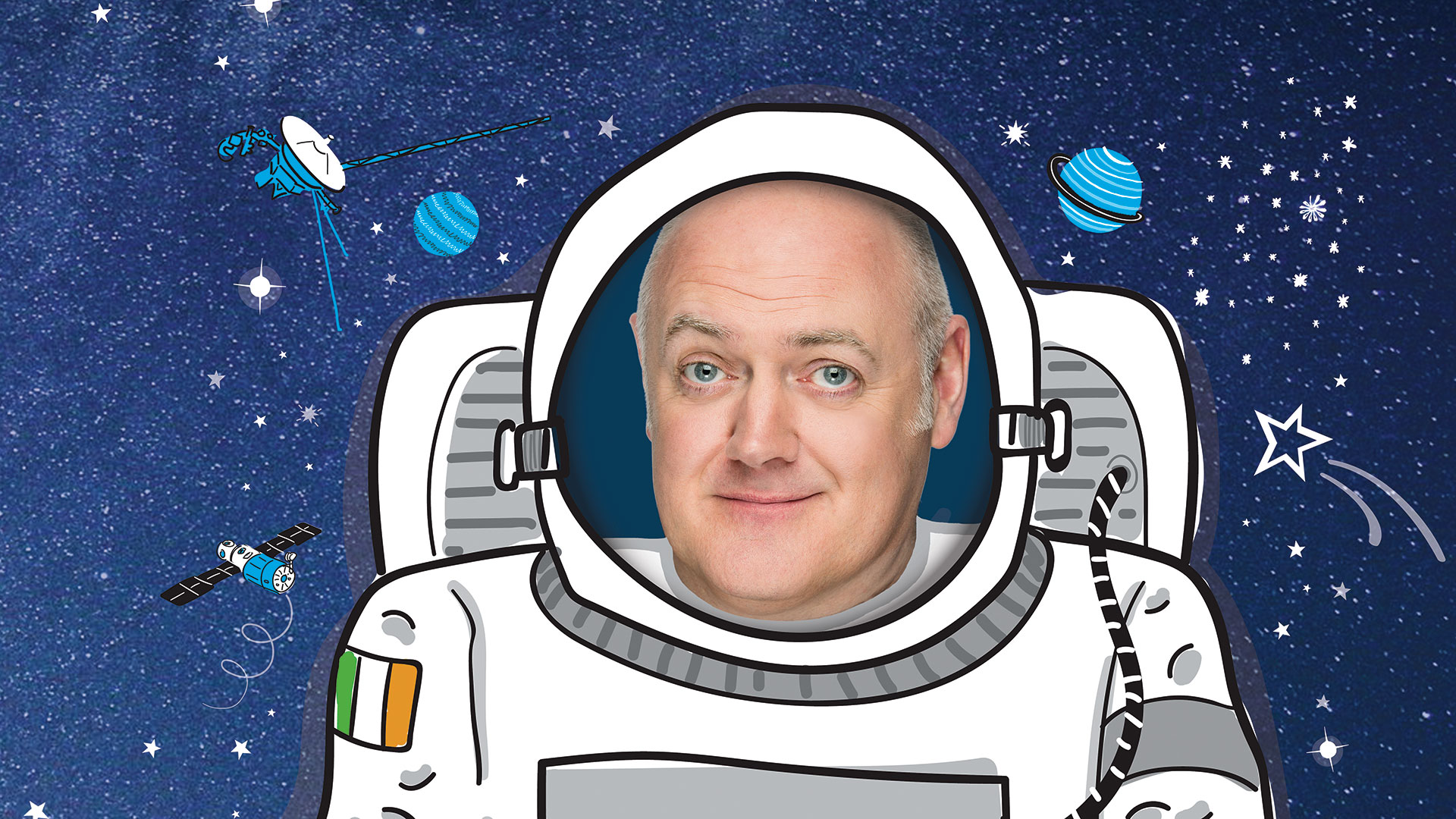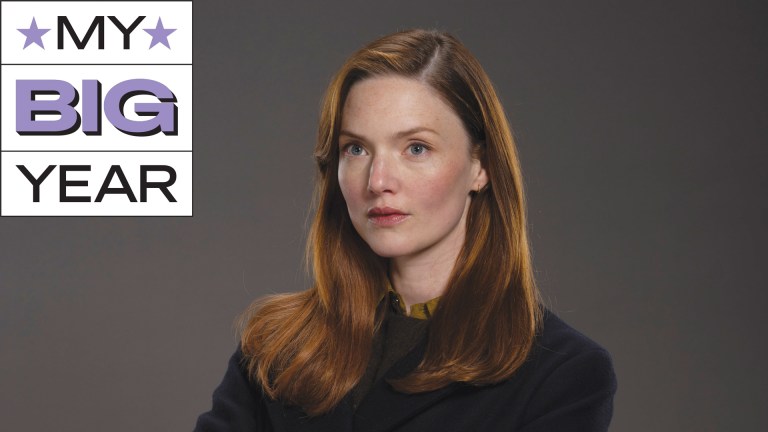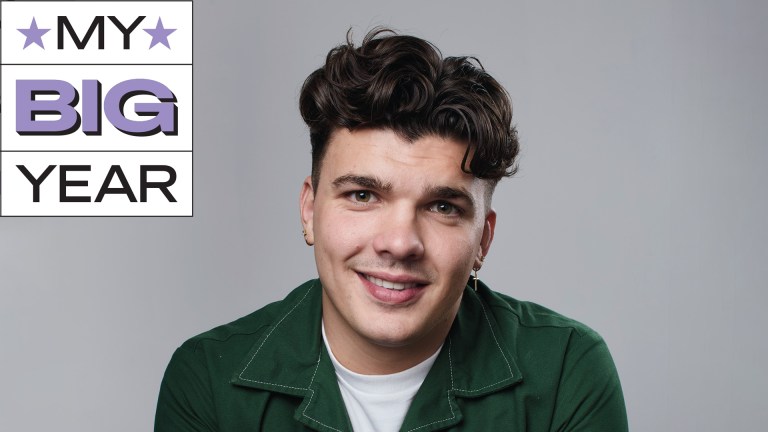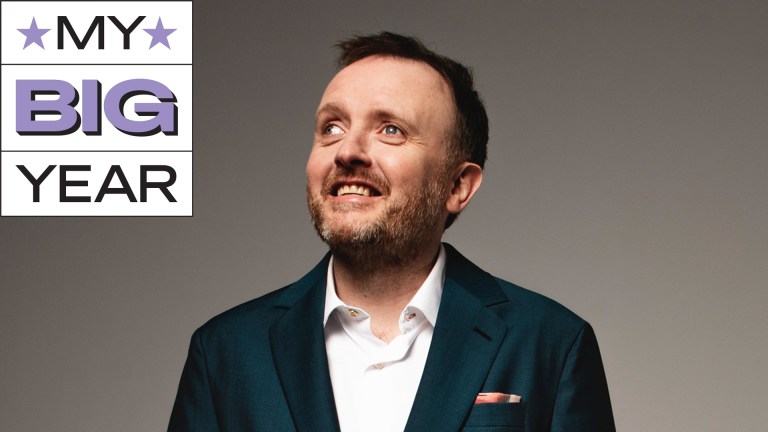Because I ran away to the circus. I was on a path, not to become an astronaut but on a path to contribute something to the great total of human knowledge. I maybe could have built a brick into that castle. But midway through somebody lured me onto a stage, I told a joke in front of an audience and they all laughed. Plus, science is hard.
When you were growing up what led you down the science path?
I was always quite numerate and nerdy. When I was about 14 there was a science teacher who went off-piste, and among the many things he talked about were black holes, cosmology, the shape of space. That was the right moment for these ideas to land. For some kids, science becomes just another subject you have to learn at school and so dull but others are agape with wonder.
I saw another press release that said only eight per cent of adults are as smart as a 12-year-old. When and why do we stop learning?
As you get older you specialise. There are things that bore children as well. We should never take our science – or our author recommendations – from press releases. Clearly, they ask a 12-year-old things a 12-year-old is learning about. Then the adults drive home while the 12-year-old is unable to do so. Who’s smart now, 12-year-old? If you were to quiz me versus my children on Mario I wouldn’t be as smart as them. But push come to shove I know where the HDMI cable goes, so I could turn off Mario.
Your book is aimed at younger readers but there is so much 95 per cent of the population wouldn’t know.
Or they have known. There will be stuff that grown-ups have been told or have seen in museums where it goes in one eye and out the other. A fragment might land and become part of your personal knowledge. I think the reading of this book to kids will have adults going, ‘Oh, I didn’t know that’, or ‘Oh, I remember knowing that’, which in some ways is more interesting.
Would telescopes be more popular if they were called time machines?
We’re looking at the past all the time. It’s a sweet notion that there are things that may have already exploded that we don’t know about yet. Astronauts made an amazing journey to go, basically, 10 feet away from Earth. What an incredible journey YOU can make just by looking up and watching the light come to us.
Most scientists aren’t famous like you are. Do you feel a responsibility to use your profile to help people engage with science?
There’s an element of that. I’m not sure whether to describe it as guilt or knowing my place – I try to make a point of never saying ‘I know this’ as opposed to ‘they know this and let me tell you what they know’. I’m against people regarding education as a utility – I should do this, so therefore I get this. You have a brain, fill it with stuff and see where it takes you.
A lot of comedians are Oxbridge educated or studied medicine or mathematical physics like yourself. Is comedy’s gain science’s loss?
There isn’t any great scientific discovery that hasn’t been made because somebody went to Edinburgh. I think I can speak for us collectively. None of us were on the cusp of curing cancer but decided to knock it on the head. We’re all better served by us not cluttering up labs.
You write about the time Newton poked himself in the eye with a needle.
Yeah, it was a test on the structure of the eye.
‘He believed that the secret to discovering the way the universe worked was to observe the world around him rather than trusting books’ – in our age of people not trusting facts and science, should more people be poking themselves in the eye?
I don’t think there’s any debate about the structure of the eye any more.
But it’s like when people deny things like climate change because they don’t believe science.
It’s one of the strangest psychological phenomena. People will pick and choose evidence to back up their own beliefs, and the stronger you argue the more their beliefs become entrenched. It’s become our modus operandi to immediately argue back so there’s not a pool of knowledge or discussion, it’s people taking polar views instantly.
There isn’t any great scientific discovery that hasn’t been made because somebody went to Edinburgh
So aren’t those the people who should be encouraged to poke needles in their eyes?
Maybe to put a telescope to their eyes and look at Jupiter’s moons. There’s no trick, it’s amazing when you see them. In science there is speculation but that has to stick to the data we have. The history of science is full of forgotten-about, at-the-time very popular theories. Our view of the universe in the last 120 years changed three times.
How much of your book will need corrected in the future?
The author bio was the first thing to change. And the speculative chapter [about space-time blankets and bubble universes], it’s what we feel is the best data we have now. We can’t know a lot of it anyway.
Maybe the kids who read your book will be inspired to take a path that proves you right or wrong.
Absolutely. Who knows what seed gets left in somebody’s mind.
Beyond the Sky by Dara Ó Briain, illustrated by Dan Bramall (Scholastic, £12.99), is out now
Illustration by Dan Bramall © Scholastic 2017









